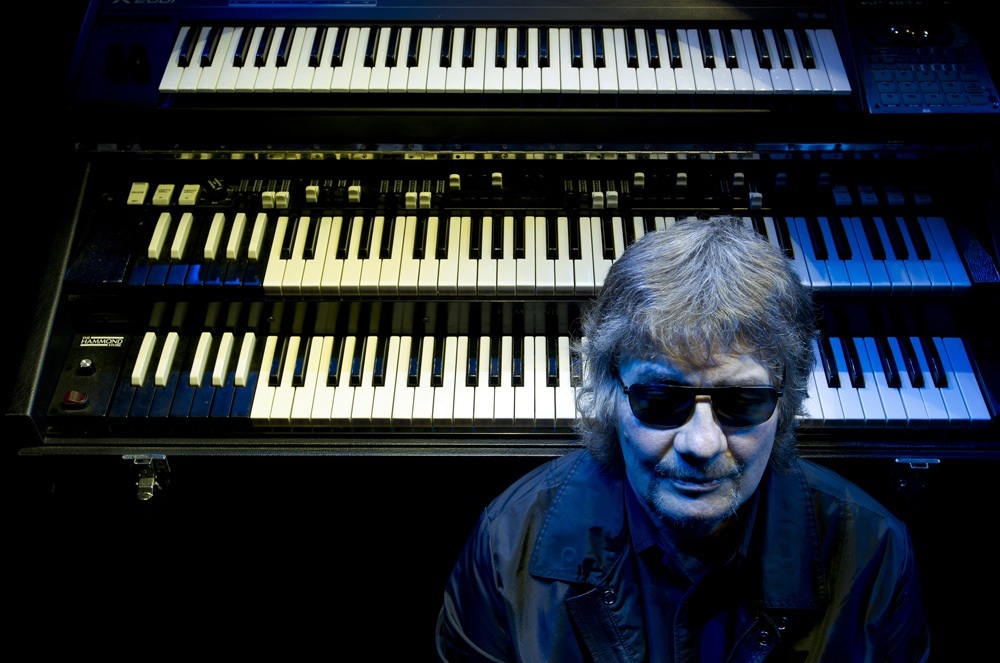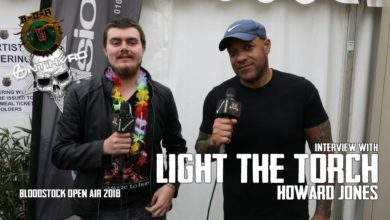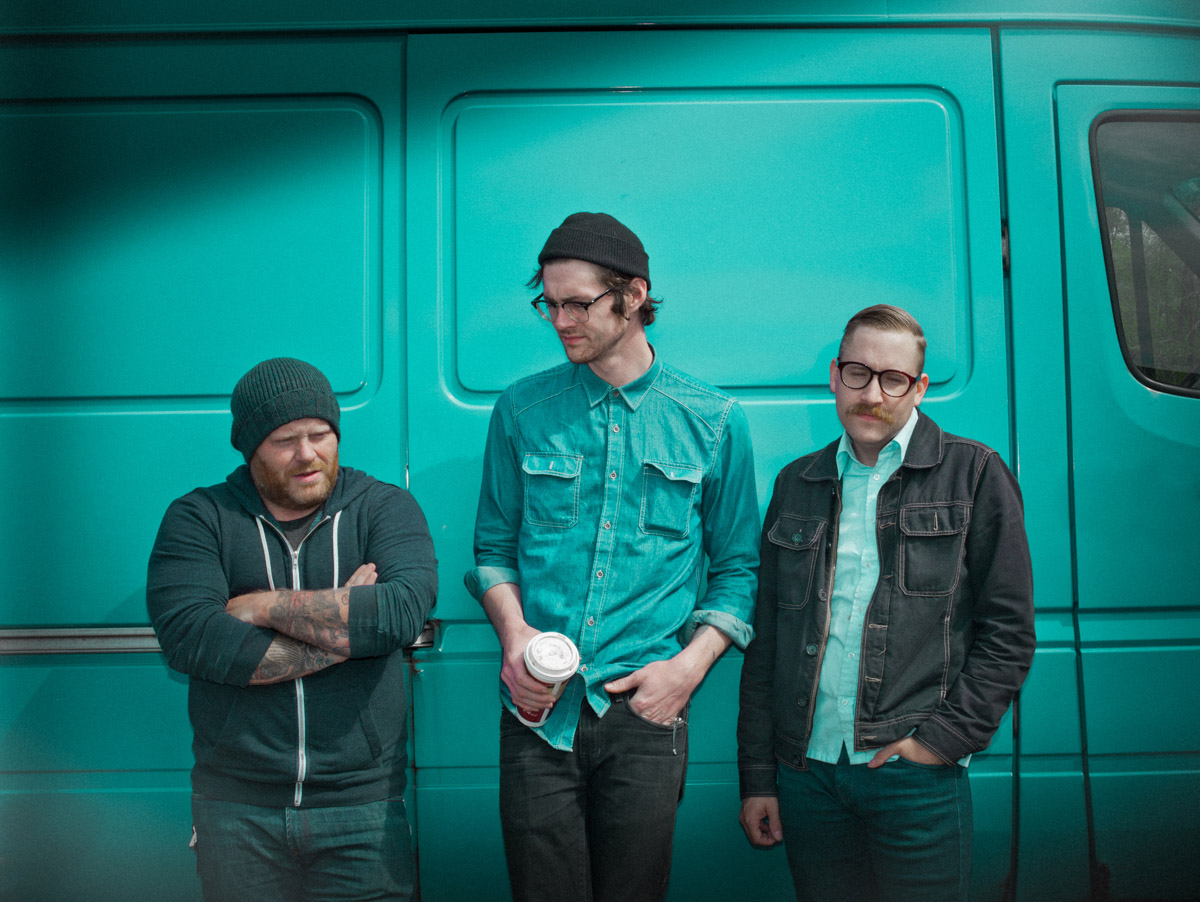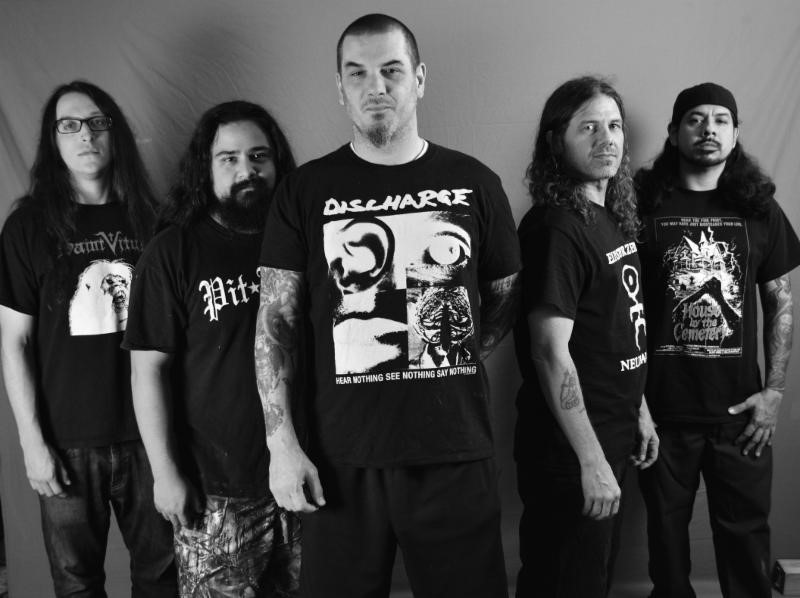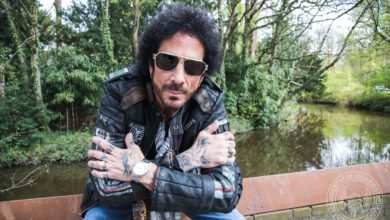Don Airey is a rock legend. Fact. Since replacing Jon Lord in Deep Purple back in 2002, he has contributed to several studio albums culminating in the band’s recent release, Whoosh! His musical pedigree also includes Gary Moore, Rainbow, MSG, Ozzy Osbourne, and also several solo albums. I was lucky to chat to Don recently after the recent release of the new Deep Purple album.
ANTIHERO: Deep Purple. Your latest album has achieved massive global success. Does it still surprise you regarding the enduring appeal of the band?
Don Airey: Yes. It really has. You do an album; you don’t know how people are going to react to it. Usually we have a law saying they loved the last one, they’re going to hate this one. But it doesn’t seem to have worked like that this time. The reaction has been overwhelming, I must say. The emails, the reviews. We even got a good review in The Spectator from… I don’t know if you are aware of Rod Liddle?
ANTIHERO: Yes, I am.
Don Airey: The editor of The Spectator himself, did a review of the album and he quite liked it, which is high praise from him.
ANTIHERO: Of course, you came into the band following the sad demise of the legendary Jon Lord. Given Jon’s legacy, how did you approach it? Particularly in playing his iconic songs live.
Don Airey: I never seemed to have a problem with that side of things. I never heard anybody shouting for Jon, not even on the first tour I did where I stood in on 24-hours’ notice. Obviously, it’s very difficult. On the first gig I said to myself, “If I try to be like Jon, I’ll come a cropper. I’ve just got to be myself.” I’ve really tried to honour his legacy. The Hammond has become very central again to the Deep Purple sound of late. I mean, he was an incredible person, an incredible player, and somebody I looked up to. I counted him as a friend. I’m glad to be carrying the torch.
ANTIHERO: Your influence on the band has increased with each album that you’ve recorded and it’s particularly prominent on Whoosh! I just wondered are the other band members listening to you more these days, or have they embraced your creative input more compared to when you first started?
Don Airey: It’s a question of when you’re a keyboard player in a rock band, there’s not many of us about and you have to keep quite quiet. These guitar players and these singers, they have massive personalities. I took a cue from Ian Paice, he kind of leads the band from behind. If you know what I mean? You’ve got to be a diplomat and it took me a bit to learn how Deep Purple works. It only works one way and to get in their way of thinking takes time. I think of it that I now provide 20%, my full 20% of the input. 25 on a good day.
ANTIHERO: Outside of what you’ve created with Purple, you’ve worked with a diverse range of artists in different musical genres. From rock, right through down to Lloyd Webber. I just wondered if there’s any other musicians or musical styles that you like to work with, or even a musical style that you’d like to embrace for the first time?
Don Airey: Well, lately I’ve become… We did three albums in Nashville. The last three albums. It’s what they call country music, but it only became country music in 1970. Before that, it really was where rock and roll came from and that’s something you learn. And those musicians in Nashville, they’re just incredible. So I really started to listen to… Again, I took a lead from Ian Paice. He was always listening to country music. At one point, he said, “It’s the only decent thing out there at the moment.” So I listened to a lot of people that he told me about. But I would say it’s probably harder to play than jazz. Those Nashville cats, they’re very tribal. It would take a while. It would take something of a miracle for someone like me to break in there, but I really admire them.
ANTIHERO: You’ve worked over the years with several rock enigmas, Michael Schenker, Ritchie Blackmore. They always have a sense of mystery around them. Did you find it personally more challenging to create and indeed satisfy people like that?
Don Airey: I read a biography of Woody Allen, somebody who was very close to him. I mean, I think Woody Allen’s a real genius. And so does the guy writing the book. But he said, Woody’s the most insecure person he’s ever known. He’s never certain of anything. He’s always wanting to change everything. And that’s what I found with people like Ritchie and Gary Moore. They’re very uncertain of themselves, they don’t know how they do what they do. Whereas when you’re a keyboard player, you know exactly what it is that you do. So that’s really how you help. That’s the main role for a keyboard player, you just give them a background that makes them feel comfortable and makes them feel that their music is worth playing. Because I’m not ever sure that they think it is.
ANTIHERO: You mentioned there Gary Moore, obviously from Northern Ireland, like me. Do you feel that he was underrated, his musical talent, and his ability?
Don Airey: I think he’s a little unknown to the general public. But people like myself, I was talking to Joe Bonamassa recently, we were just talking about Gary. And he just said to me, “Gary wrote the book that I play from.” He was quite open about it. He just said he got so much from Gary. He was very frank about it, I couldn’t believe he said it. We were just talking about Gary. I mean, Gary was quite a close friend over the years. But like you say, there’s a certain element of mystery and you never get completely into their confidence, but he had a tremendous influence on me. He still does. I miss him terribly actually. And anything I ever did I used to think to myself, “What would Gary think of this?” And I still do, I think in a way.
ANTIHERO: Do you have any maybe little anecdotes or personal stories that you could share about your time? Because you did create quite a lot of albums with Gary.
Don Airey: Yeah. I’d been working with a band in France, I can’t remember who it was. And he’d called me there. He said, “I’ve got a new project.” “What is it?” He said, “Oh, I’m thinking of doing a blues album.” So I said, “Well, I’m flying back into Heathrow today from Nice,” actually it was. “And I’ll come straight down to John Henry’s, the rehearsal place in London, where he was. No, he was in a place called Easy Hire actually. I’d had a morning coffee on the Avenue Des Anglais in Nice and then I walked into Easy Hire and Gary was in the cafe and we sat down. And there was a big picture on the wall of the Avenue Des Anglais in Nice. I said, “Oh, this is a good omen.” And then he told me what he wanted to do.
But we went in a room and started fiddling about with things and he came up with the basic idea for Still Got The Blues. And I just wrote it down in a little notebook. And two days later we started rehearsals, we got a band together. And he said to me, “What was that thing we came up with on Wednesday?” I said, “What, the kind of slow tune?” “Yeah,” he said. “I can’t remember what it was.” So I played it to him. “Oh yeah.” But for me writing that down, I don’t think Still Got the Blues would have existed. I mean, he was such a talent.
ANTIHERO: I was actually quite surprised as well, that he seems so underrated. Just to pick out another band that you’ve worked with, that you contributed keyboards to Judas Priest, Painkiller, album. What was your given remit going into creating keyboards in a band that isn’t generally renowned for it using any keyboards?
Don Airey: They were so worried about it, they didn’t even give me a credit I don’t think, on the album. They paid me, which is always the point. But recently, I mean this last month or so… It’s a wonderful album Painkiller.
ANTIHERO: Absolutely.
Don Airey: And Scott Travis has spilled the beans about it that all the bass parts are me playing on the mini. It’s Moog bass on the whole album, that was Ian Hill’s bass mixed in as well on parts. But at the time Ian wasn’t very well. So, he wasn’t at the sessions. So, I got made to do all the bass and they kept it. I mean, it was a funny old job. I only got to play proper keyboards on one track, I can’t remember what the track is. I just read about it yesterday that they’d actually said, I’ve never said a word about it before. I mean, it was an exciting album to do. They’re wonderful people to be around.
ANTIHERO: Just recounting these stories about people you’ve worked with, albums that you’ve created. I just wonder if there’s any progress regarding that book of yours. I’ve read quite some time ago that there was a book being [written].
Don Airey: I’m always halfway through because my career keeps going. But with the COVID hiatus I’ve been working on it. There’s a lot of documentation, that’s been the hard bit. The itineraries, I’ve got all of them. There’s so many of them. And lots and lots of photographs. So I’ve been sorting that out, cataloguing it, I mean, it’s quite an archive actually. And then I’ve got a deadline for the beginning of January to deliver. Fingers crossed I can do it.
ANTIHERO: Do you have any spare time interests or hobbies outside music, or is it all-encompassing in your life?
Don Airey: Yeah. Let me think. Not really, I must be honest. I do a lot of walking. I like to put on a storm jacket and go up hills on the Lake District and I’ll go down to Wales. A little bit of gardening but mainly my life’s dominated by music.
ANTIHERO: Yeah. How do you view your own music legacy? Obviously, you indicated there you were collecting archives with regard to your book. How do you view it? I mean, it is quite like you say, extensive, expansive.
Don Airey: I’ve never really had time to look back. And I’ve always seen a list of things. I don’t know. I always used to call it the catalogue of shame. I could have done something decent with my life instead of all this swanning around the world, deafening people. But I’m very proud of what I’ve done now. The thing is, you work with all these people, they’re just your mates. Like Gary and Ritchie to a great extent. And Cosy Powell. They’re just your mates, and suddenly you realise they’ve all become legends. It’s a funny thing to deal with because you know what they’re like as people and everyone thinks they’re these gods. Which of course they are.
ANTIHERO: Growing up, what was your first musical experience? What was your own introduction to music? Was it something maybe played in your home when you were growing up? Something on the radio?
Don Airey: I remember the moment very clearly. I was only about two or three and I was sitting on the floor playing, I had this wonderful toy submarine that fired torpedoes. And I was trying to get it to work. And there was a programme called, Listen with Mother. And it used to end off with Faure’s lullaby, which is a piano piece. And I made the connection between the sound coming out of the radio and a big box that we had in the lounge. That we had one of those. So, I immediately… That’s when I started playing the piano, when I was three. To my father’s amazement. I think he thought he had Schubert on his hands, but he might have been disappointed.
ANTIHERO: Do you still have hopes, dreams and ambitions? I’m sure you’ve ticked many boxes in terms of career goals and achievements, but do you still have hopes and dreams?
Don Airey: No. No. I’m pretty much very happy with what I’ve done. I’d like to keep going. I think that’s my ambition just to keep… Not to really retire, but to keep going. And that seems to be the case at the moment, I’ve got a lot of work to do for different people. And just to be a bit more adventurous in the composing field. I’ve done one piano album, I’m doing another. Just modest ambitions really.
ANTIHERO: How do you view the changes in the music industry? Obviously, it’s changed quite dramatically since you first started out. Is a better or worse place to be a musician these days compared to when you started?
Don Airey: The old days were fantastic. There were so many great bands and so many great players around. But at the same time, the music business was full of sharks. It was terrible really looking back. But of course, around about the ’80s, ’90s, suddenly being a rock musician you became respectable. People didn’t sneer at you or, “Don’t you have a decent job?” I’ve enjoyed that side, that the music business is probably a lot more efficient. And it sees ahead a bit further than it used to, but it’s not as much fun. I mean, touring is. But the actual other side, the record companies. It’s become a bit respectable too, I guess.
ANTIHERO: Just the final one then. I’m sure you’ve done many, many interviews over the years, but if the rules were reversed and you could sit down with somebody, maybe a personal hero or inspiration. Who would you actually like to interview?
Don Airey: That’s a tough question. Woody Allen. I really would, yeah. He’s the most fascinating person.
ANTIHERO: Brilliant.
Don Airey: Unexpected answer. If you want a musician, Daniel Barenboim. The pianist and classical conductor.
ANTIHERO: Don, that’s been brilliant. Thank you very much for chatting to me. Hopefully I’ll get to see Purple back touring again.
Don Airey: Let’s hope so. It’s awful what’s going on at the moment.
ANTIHERO: Terrible.
Don Airey: Everyone is wondering if it’s ever going to change. Quite frightening.
ANTIHERO: Thank you very much for chatting to me anyway.
Don Airey: Okay. Very nice to talk to you, Mark.

